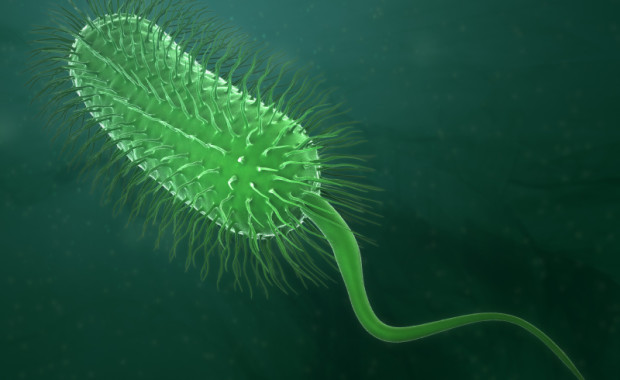Hippocrates (400BC) “Death sits in the bowels”
15 Gut Bacteria Facts
- Humans have roughly 10 trillion cells.
- Humans have roughly 100 trillion microbes within their bodies.
- Of all the microbes within us, the gut bacteria are the most important.
- Gut bacteria differ between obese and lean people.
- It is possible to change the composition of one’s gut bacteria through one’s diet.
- Transferring the gut bacteria from obese mice to lean mice causes fat gain in lean mice.
- Artificial sweeteners might cause weight gain via their effects on gut bacteria.
- Humans are born with no microbes (or very, very few).
- “Ecobiotics” (Faecal pills) might replace antibiotics one day.
- Faecal transplants have been used successfully to treat c. difficile bowel infections in the last 30 years.
- Diabetes often gets cured within 48 hours of stomach bypass operations; a change in the gut bacteria is one of the mechanisms effecting this cure.
- People who eat grains have higher levels of a particular gut bacteria which is linked with arthritis and autoimmune diseases.
- Maternal separation in baby rhesus monkeys alters the gut bacteria in the same way as stress does.
- Use of antibiotics in infancy is associated with an increased risk of asthma and being overweight in childhood. (Antibiotics have been used to fatten animals for the last 60 years).
- The gut bacteria that one eventually obtains are derived from one’s mother and from exposure to the environment.
A human adult has roughly 10 trillion of their own cells and harbours a staggering 100 trillion microbial cells within and on the surface of their body, i.e. microbes outnumber our own cells by a factor of ten to one.
Despite this deluge of numbers, we have nothing to fear for the most part, from our bacterial migrants. Our relationship with them is usually one of synergy and symbiosis.
The significance of our hitherto ignored neighbours is increasing by the day, and the possibility that our most intimate of companions may be playing a role in the development of obesity has now emerged.
What makes us obese?
The obvious answers: eating too much and not exercising enough.
The less obvious answers: the wrong gut bacteria; unlucky genes; eating the ‘wrong’ foods; ‘your grandparents ate badly’ and other epigenetic factors.
Don’t we all know someone who eats like a horse, does no exercise and stays skinny? And at the other extreme someone like myself who only has to glance at a piece of cake to pile on a few extra pounds? These quandaries could be due to any one or all of the above reasons.
There’s not a lot we can do about our genes, nor about what our grandparents ate, but we can certainly have a stab at changing our gut bacteria.
How gut bacteria contribute to obesity:
- They determine how much energy is extracted from food.
- They affect our appetite controlling hormones.
- They have effects on inflammation (which is one of their most important impacts in our bodies).
What is an ideal diet?
Unprocessed fruits, vegetables, fish, eggs, meat, nuts and not much else (yes, I know I say this on virtually every post on this site!).
According to ‘The GI Diseases Research Unit’ in Ontario, carbohydrates should be restricted to ‘low-density’ ones in vegetables and fruit, and ‘dense carbohydrates’ such as sugar or flour should be excluded or kept to a minimum.
This diet is backed up by other researchers such as Professor Staffan Lindeberg of the prestigious Lund University in Sweden, who has conducted extensive studies of Hunter-Gatherer populations.
People consuming a Palaeolithic type diet with carbohydrates predominantly from fruit and vegetables seem to enjoy extraordinarily good health. It appears that the ratio of ‘fat: carbohydrates: protein’ in our diets is unimportant – of much greater importance is the precise source of the fat, protein or carbohydrate.
Common sense and instinct have always dictated that we should be eating more fruit and vegetables, and that we should be cutting out sugar, refined oils and processed foods; the benefits of these changes on our gut bacteria give further ammunition to implement this sensible advice.
What exactly are these 100 trillion microbes, and do they play a part in making us human?
These foreigners are composed mostly of bacteria; plus a few viruses, fungi and archaea joining in the mêlée.
Within this vast cellular democracy of human and microbial cells (although no one-cell-one-vote here), our ‘gut bacteria’ appear to have gained the elevated status of a ‘virtual organ’. They are currently believed to be one of the most important environmental factors impacting on our physiology and are crucial to our normal biological functioning.
What’s more, there is even evidence that the gut bacteria can influence our brain chemistry and, consequently, behaviour.
It appears that there is a lot more to being human than was previously thought – far, far more.
Maybe ‘going with one’s gut feeling’ has more substance to it than was previously thought?
Ralph Waldo Emerson: “What lies behind us and what lies before us are tiny matters compared to what lies within us.”
Glossary
- Strictly speaking ‘gut bacteria’ should read ‘gut microbiota’ (I assumed that most people would find it easier to read ‘gut bacteria’ which is why I used it).
Click here for a more in-depth review of ‘The Human Microbiome’.

